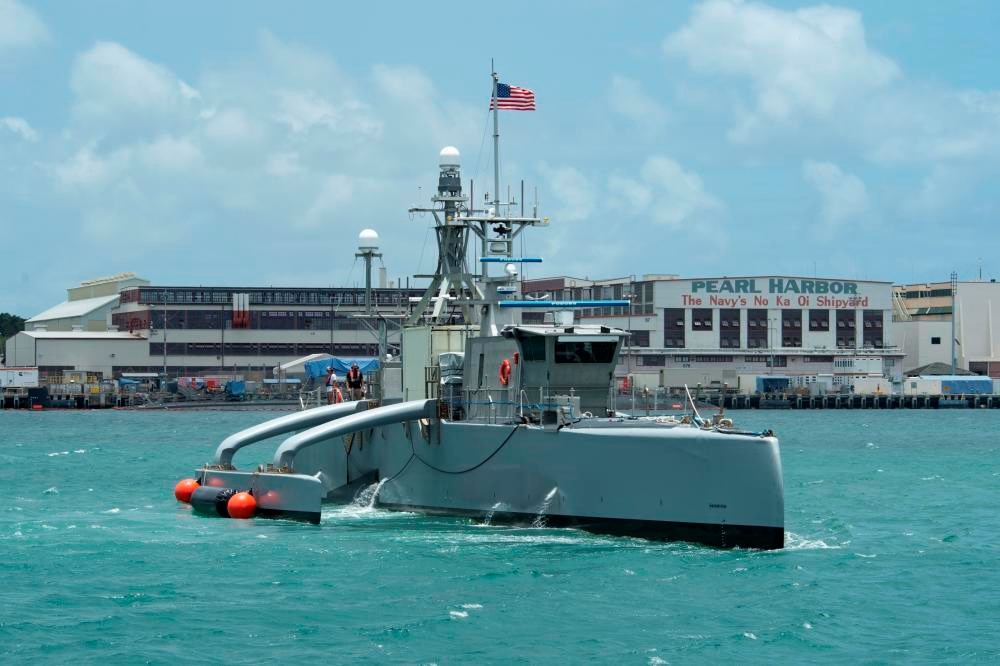US, West Asia allies building anti-Iran UAV network: Reports
The United States wants to use its regional allies, Saudi Arabia, the Israeli occupation, and other parties, to boost its capabilities.
-

In this image provided by the U.S. Navy, a Sea Hunter, a crewless vessel, arrives at Pearl Harbor, Hawaii, to participate in the Rim of Pacific (RIMPAC) 2022, on June 29, 2022 (U.S. Navy photo by Mass Communication Specialist 2nd Class Aiko Bongolan, via AP)
The US Navy is collaborating with its allies in West Asia to establish a network of unmanned drones to help in their bid to undermine Iran and counter its 'regional capabilities,' The Wall Street Journal reported on Wednesday, citing US officials.
The allies, namely the Israeli occupation, Saudi Arabia, and other regional parties, are helping prop up a Pentagon program aimed at Tehran that will see Washington upping the number of drones deployed in the region, giving the White House more of a foothold.
The officials said the unmanned devices are offering better visibility over waterways. They did, however, decline to disclose the number, location, or method of the aerial and maritime drones.
The Navy said it anticipated having 100 small surveillance drones operating from the Suez Canal to the Iranian coast by next summer, with a command center in Manama, Bahrain.
The US outlet said the network has been six months in the making, and it is a part of a growing alliance between the US, "Israel", and the normalizing Arab regimes.
The test drones are currently unarmed, but defense analysts expect that some will have weapons in the future, according to the WSJ.
The UAVs are highly capable, with some being able to float at sea for up to six months and can send back detailed images, alongside other forms of data, the report said.
Members of Congress have repeatedly raised concerns regarding the Navy's plans to boost their program of unmanned ships, which could see the Treasury losing tens of billions of dollars. Meanwhile, Washington's forces are still trying to figure out where to employ smaller drones and safeguard them.
US President Joe Biden traveled to occupied Palestine and Saudi Arabia last month, signing the "Jerusalem Accord" after the Democrat called for forming an "anti-Iran" alliance following his meeting with Israeli occupation Prime Minister Yair Lapid.
The Declaration, issued to the public ahead of a formal signing ceremony, emphasized the United States' unwaning support for "Israel's" regional military advantage and ability to "defend itself alone."
The declaration continued by saying the United States confirms the resolve to work with other partners to oppose what it described as "Iran's aggression and destabilizing activities," whether advanced directly or via so-called "proxies" and organizations like Hezbollah, Hamas, and Palestinian Islamic Jihad.
The tour saw the US leader try and mend ties with Saudi Arabia to persuade Riyadh and other Gulf allies to pump out more oil in the markets as the Biden administration faces mounting criticism over the soaring oil prices.

 3 Min Read
3 Min Read








